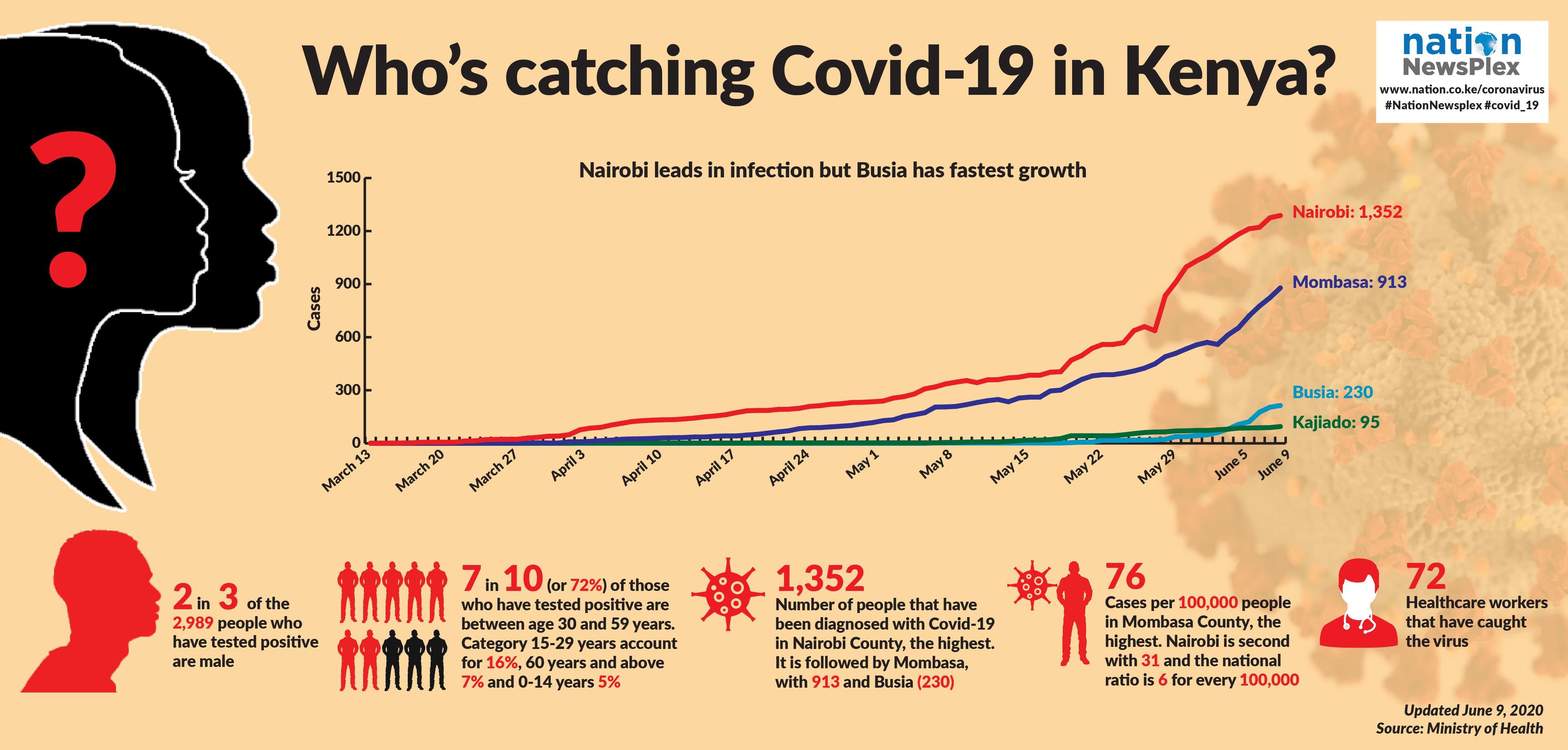Alarm as diabetes rate more than doubles in three decades
GRAPHIC | JOY ABISAGI
What you need to know:
- Prevalence of diabetes in Kenya was six per cent in 2014, a 150 per cent rise from 2.4 per cent in 1980
- One in every 17 Kenyans has diabetes, and 12,890 people in Kenya died from both diabetes and high blood glucose in 2014
- Globally, the number of adults living with diabetes has almost quadrupled to 422 million in 2014 from 108 million in 1980, with most living in developing countries
The prevalence of diabetes in Kenya has more than doubled in the last three decades, according to the first Global Report on Diabetes.
The report, jointly published by the World Health Organisation and the Lancet on World Health Day, shows that the prevalence of diabetes in Kenya was six per cent in 2014, a 150 per cent rise from 2.4 per cent in 1980.
Today, one in every 17 Kenyans has diabetes, and 12,890 people in Kenya died from both diabetes and high blood glucose in 2014.
QUADRUPLED
Globally, the number of adults living with diabetes has almost quadrupled to 422 million in 2014 from 108 million in 1980, with most living in developing countries.
“Diabetes is on the rise. It is no longer a disease of predominantly rich nations, as prevalence steadily increases everywhere, most markedly in the world’s middle-income countries.”
According to the report on diabetes released during the World Health Day, being overweight and obese are some of the factors driving this dramatic rise.
The spike in numbers has prompted the Ministry of Health to urge people to go for early screening so that the disease can be detected, and its management started while the disease is at an early stage.
Health Cabinet Secretary Dr Cleopa Mailu said: “This year’s theme is meant to encourage Kenyans to go for early screening to prevent or delay the onset of diabetes and related complications.”
Diabetes is a chronic disease that occurs either when the pancreas does not produce enough insulin or when the body cannot effectively use the insulin it produces.
In Kenya, it is estimated that more than 1.8million people between 20 and 79 years are living with diabetes. Globally almost half of those suffering from diabetes remain undiagnosed because the disease can easily go undetected.
“The studies conducted locally indicate the prevalence rate ranges between three per cent in rural areas and 14 per cent in urban areas,” said Dr Mailu.
PREVENTION
WHO’s Director General, Dr Margaret Chan, issued a call for action on diabetes, saying there was need to step up prevention and treatment of the disease.
Some of the measures needed include expanding health-promoting environments to reduce diabetes risk factors, such as physical inactivity and unhealthy diets.
At the same time she said there was need to strengthen national capacities to help people with diabetes receive the treatment and care they need to manage their conditions.
“Diabetes is on the rise. It is no longer a disease of predominantly rich nations, as prevalence steadily increases everywhere, most markedly in the world’s middle-income countries,” she said.
She added: “We need stronger responses not only from different sectors of government, but also from civil society and people with diabetes themselves, and also producers of food and manufacturers of medicines and medical technologies.”
Uncontrolled, diabetes has dire consequences for health and well-being, including the possibility of heart attack, stroke, blindness, kidney failure and in other scenarios, gangrene, leading to leg amputation.
“Many of these complications and premature deaths can be prevented through simple lifestyle measures such maintaining normal body weight and regular physical activity,” advised Dr Custodia Mandlhate, the WHO country representative in Kenya.
As part of the 2030 agenda for sustainable development, WHO member states have set an ambitious target to reduce premature deaths from non-communicable diseases, including diabetes, by one third, achieve universal health coverage and provide access to affordable essential medicines.





